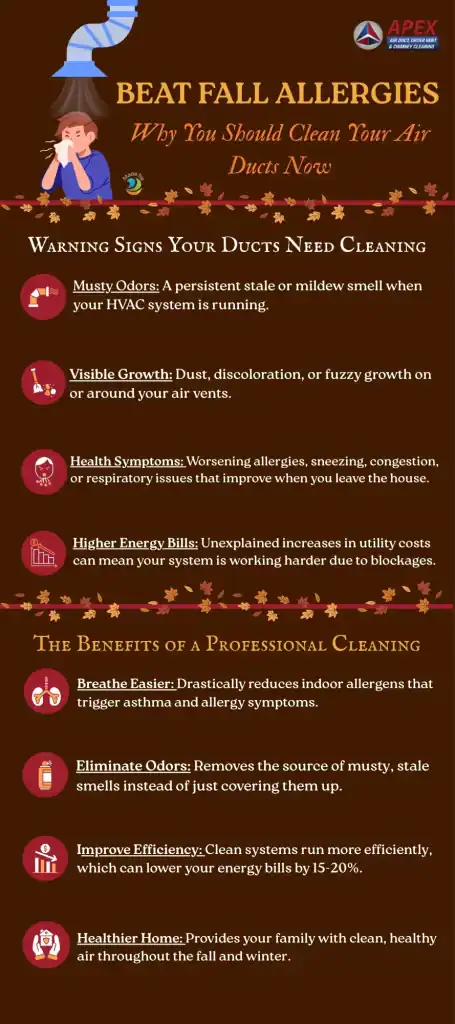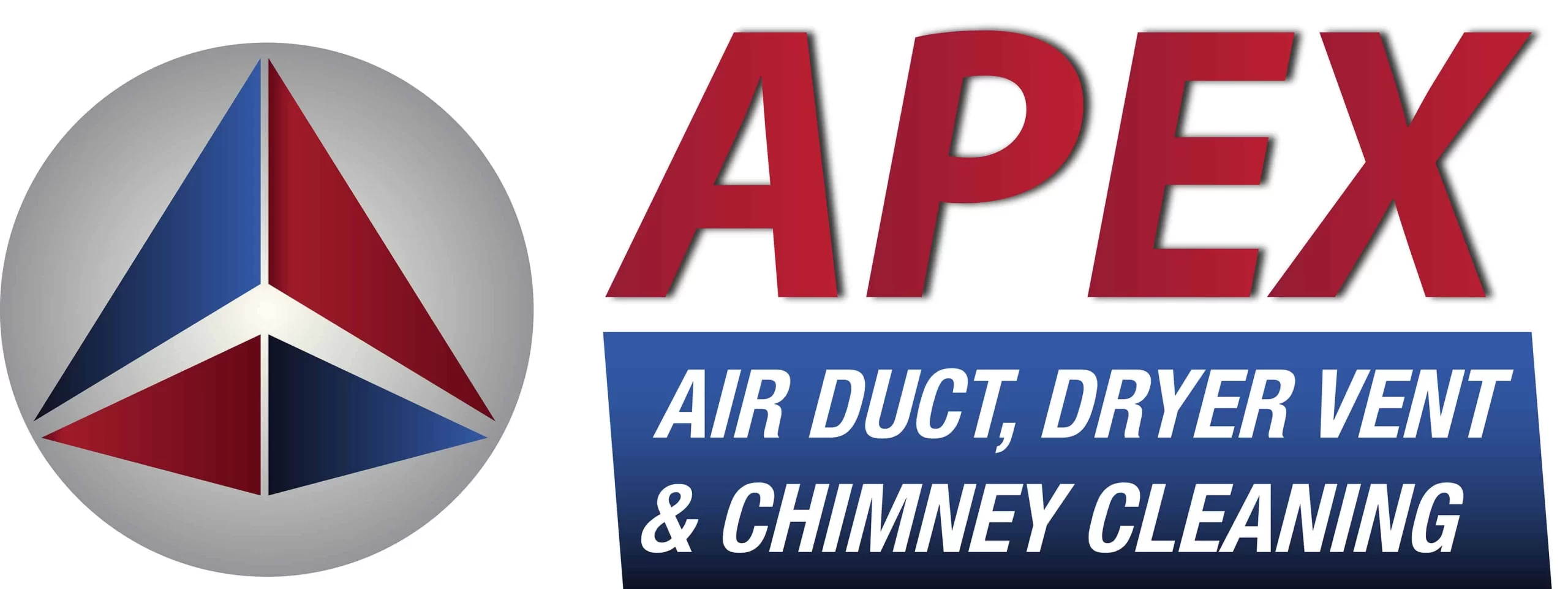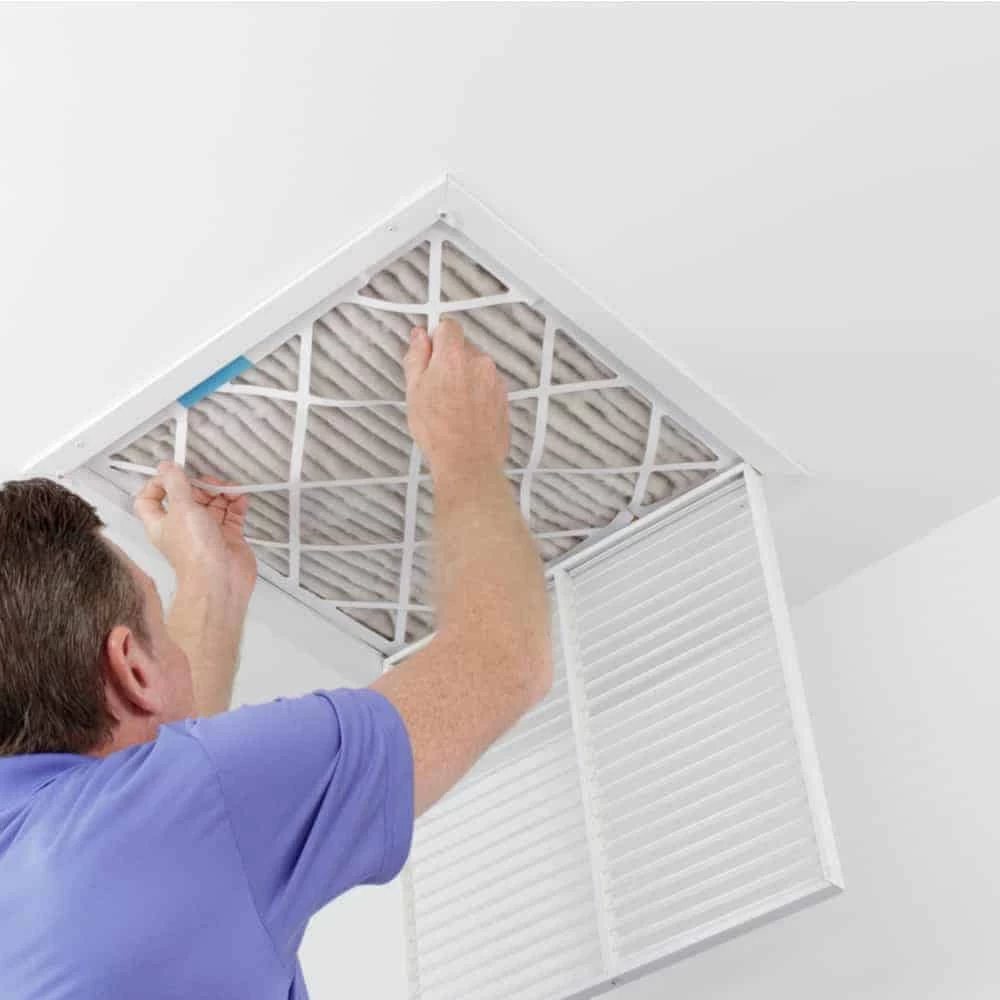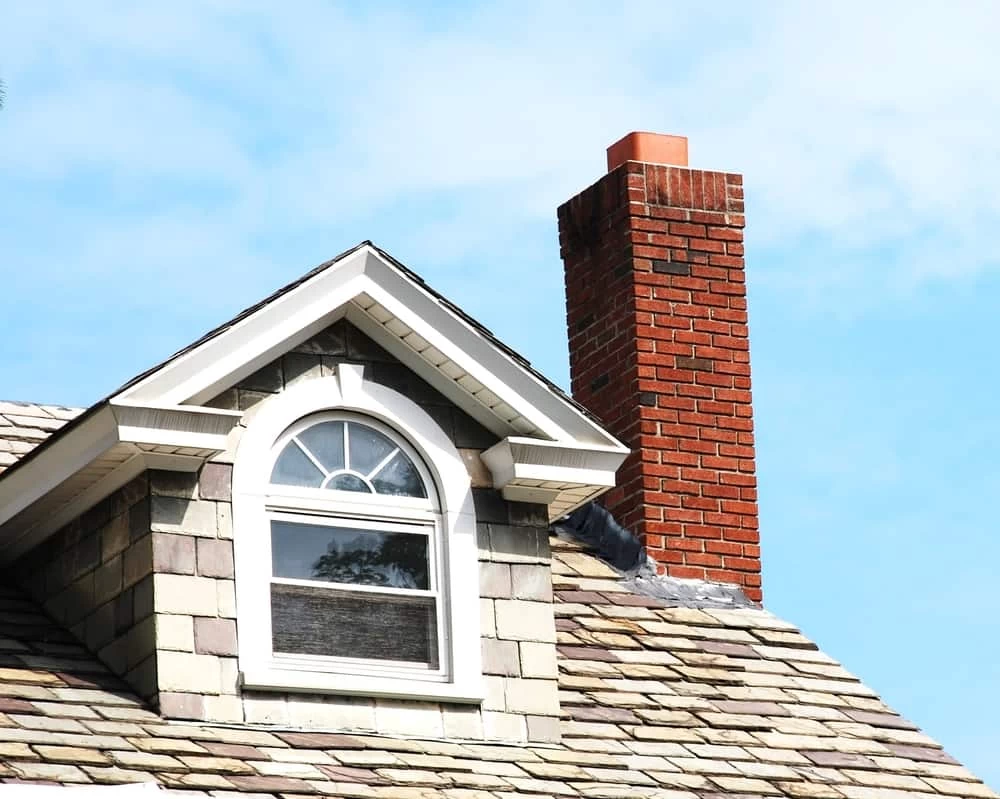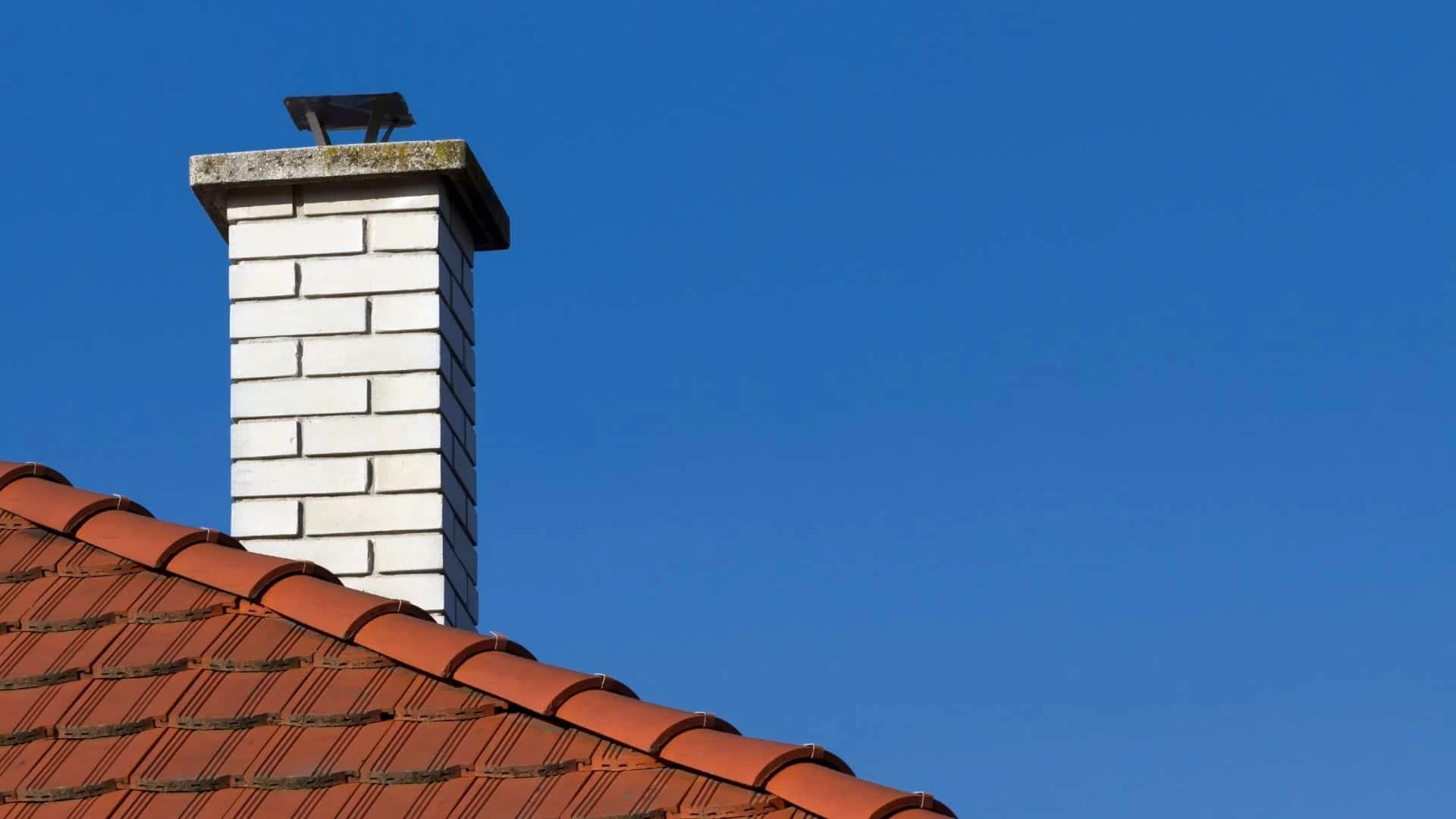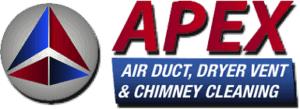Summary:
Why End-of-Summer Is the Perfect Time for Air Duct Cleaning in New Jersey
Late summer presents a unique opportunity for New Jersey homeowners to get ahead of allergy season. New Jersey summers are especially damp and humid, creating perfect conditions for mold and allergen accumulation in your HVAC system. By September, your ducts have collected months of pollen, dust, and moisture-related contaminants.
Cleaning now means you’re removing this buildup before you close your windows and rely heavily on your HVAC system through fall and winter. Indoor air can be 2 to 5 times more polluted than outdoor air, and that pollution gets trapped and recirculated once you switch from fresh air ventilation to closed-system heating and cooling.
The timing also works in your favor practically. We’re typically less busy in late summer compared to peak heating and cooling seasons, meaning better availability and often more competitive pricing.
How New Jersey's Humid Climate Affects Your Air Ducts
New Jersey’s climate presents unique challenges for maintaining clean indoor air. Coastal areas of New Jersey have high humidity, making them more prone to mold allergies, but the entire state experiences humidity levels that promote allergen growth.
Summer humidity trapped indoors creates ideal breeding grounds for mold development, leading to property damage and health risks. Your air conditioning system works overtime during humid months, but it can also create condensation problems if not properly maintained. Condensation on cooling coils is a major factor in moisture contamination, and high relative humidity indicates potential for mold growth.
What many homeowners don’t realize is that outdoor humidity seeps indoors, pushing indoor humidity past the 60% threshold where mold thrives. Your HVAC system becomes a highway for distributing these contaminants throughout your home. Dark, damp ductwork provides the perfect environment for mold spores to settle and multiply.
This is particularly problematic in older homes or those with inadequate ventilation. New Jersey’s hot and humid summers provide perfect breeding grounds for mold, making homes vulnerable during wetter months. Even newer homes aren’t immune—energy-efficient construction can trap moisture if mechanical ventilation isn’t adequate.
The solution isn’t just running your air conditioner more. Relative humidity should not exceed 50%, and while most modern air conditioners dehumidify as they cool, they don’t independently control both temperature and humidity. Professional duct cleaning addresses the accumulated results of months of humidity exposure.
Signs Your Air Ducts Need Cleaning Before Allergy Season
Recognizing when your air ducts need attention can save you from months of poor indoor air quality. Family members with excessive allergies often notice improvement right away after duct cleaning, but you don’t have to wait until symptoms worsen.
The most obvious indicator is persistent musty or stale odors when your HVAC system runs. Mold in air ducts gives off a strong mildew smell that spreads throughout the house—try turning your system off for 10-20 minutes, then back on to see if the smell returns. This simple test can help you identify whether the odor is coming from your ductwork.
Visual signs are equally telling. Check your vents for dust buildup, discoloration, or any fuzzy growth that could indicate mold. Mold can appear in various colors depending on species and humidity level, but it’s identifiable by its raised, fuzzy texture and splotchy appearance. Don’t ignore what you can see—it often indicates larger problems hidden deeper in your system.
Pay attention to your energy bills too. Mold and debris in HVAC systems can increase utility bills by negatively impacting efficiency, forcing units to work harder than usual. If your bills have been creeping up without explanation, contaminated ductwork might be the culprit.
Health symptoms provide another important clue. Mold exposure can cause unpleasant health effects, and persistent symptoms may indicate HVAC mold contamination. If family members experience more frequent sneezing, congestion, or respiratory issues when spending time indoors, especially when the HVAC system is running, it’s time for professional inspection.
Indoor Air Quality and Allergy Prevention in New Jersey Homes
Americans spend about 90% of their time indoors, and indoor air quality impacts everyone, especially vulnerable populations like children, elderly, and people with health conditions. For New Jersey families dealing with seasonal allergies, the quality of indoor air becomes even more critical during fall and winter months when windows stay closed.
Removing irritants from ducts can alleviate common symptoms of asthma and allergies, but the benefits extend beyond immediate symptom relief. Clean ducts mean your family isn’t constantly exposed to recirculating allergens, giving immune systems a chance to recover between outdoor exposure periods.
The connection between duct cleanliness and allergy management is particularly important in New Jersey’s climate, where outdoor allergen seasons can extend well into fall, overlapping with increased indoor time.
How Dirty Air Ducts Affect Allergies and Respiratory Health
The relationship between contaminated air ducts and allergy symptoms is more direct than many homeowners realize. Dust mites, mold, pet dander, environmental tobacco smoke, and particulate matter are asthma triggers that can cause attacks in sensitive individuals. When these substances accumulate in your ductwork, they’re continuously distributed throughout your home.
Molds produce allergens, irritants, and potentially toxic substances that can cause allergic reactions in sensitive individuals, including hay fever-type symptoms like sneezing, runny nose, red eyes, and skin rash. What makes ductwork particularly problematic is that it provides a distribution system for these contaminants—every time your HVAC system cycles, it’s potentially spreading allergens to every room.
High humidity creates an environment conducive to allergen proliferation, promoting mold growth and allowing dust mites to thrive in humid conditions. Your ducts can become a reservoir for these microscopic allergens, maintaining high concentrations even when outdoor conditions improve.
The cumulative effect is significant. EPA research shows that mold spores release microscopic fragments that irritate nasal passages and lungs, with people with asthma experiencing more frequent attacks, and prolonged exposure causing headaches, fatigue, or skin irritation. Professional cleaning breaks this cycle by removing the source of contamination.
For New Jersey families, this is particularly relevant because allergy seasons vary throughout the year due to changing weather patterns, with summer bringing grass pollen that causes runny nose, watery eyes, and coughing. Clean ducts ensure that indoor air provides relief rather than adding to the allergen load.
When Is the Best Time to Clean Ducts in New Jersey
Timing your air duct cleaning strategically can maximize its effectiveness for allergy prevention and system efficiency. The EPA recommends cleaning air ducts every three to five years to maintain good indoor air quality, though this can vary based on allergies, pet dander, or recent renovations.
For New Jersey homeowners, end-of-summer cleaning offers multiple advantages. You’re removing the accumulated allergens and moisture-related contaminants from the humid summer months before you begin relying heavily on your HVAC system for heating. This timing also allows you to address any mold growth that may have developed during the humid season before it becomes a larger problem.
If you have pets, family members with allergies or asthma, or have recently completed renovations, you might need cleaning every 2-3 years, and homes in high pollen areas or those using HVAC systems year-round may need more frequent service. New Jersey’s climate and extended pollen seasons often put homes in this category.
Consider your family’s specific situation too. If anyone has been experiencing increased allergy symptoms, respiratory issues, or if you’ve noticed musty odors, don’t wait for the standard timeline. The best approach is annual inspection—a qualified technician can determine if cleaning is needed based on actual ductwork condition.
The practical benefits of late-summer timing extend beyond health considerations. Clean ducts can save energy costs because dust and debris buildup forces HVAC systems to work harder, while clean ducts allow better airflow and typically result in 15-20% energy savings. Starting the heating season with clean ducts means optimal efficiency from day one.
Taking Action: Professional Air Duct Cleaning for New Jersey Homes
End-of-summer air duct cleaning isn’t just about preparation—it’s about taking control of your family’s indoor air quality during the months when you’ll be spending the most time inside. You can prevent damage to your home and furnishings, save money, and avoid potential health problems by controlling moisture and eliminating mold growth.
The investment pays dividends in comfort, health, and energy savings throughout the fall and winter seasons. Professional cleaning removes years of accumulated contaminants that household cleaning simply can’t reach, giving your family the clean indoor air they deserve.
When you’re ready to breathe easier this allergy season, we bring over 40 years of experience and New Jersey’s only triple certification to ensure your home’s air quality meets the highest standards.
Taking Action: Professional Air Duct Cleaning for New Jersey Homes
End-of-summer air duct cleaning isn’t just about preparation—it’s about taking control of your family’s indoor air quality during the months when you’ll be spending the most time inside. You can prevent damage to your home and furnishings, save money, and avoid potential health problems by controlling moisture and eliminating mold growth.
The investment pays dividends in comfort, health, and energy savings throughout the fall and winter seasons. Professional cleaning removes years of accumulated contaminants that household cleaning simply can’t reach, giving your family the clean indoor air they deserve.
When you’re ready to breathe easier this allergy season, we bring over 40 years of experience and New Jersey’s only triple certification to ensure your home’s air quality meets the highest standards.
